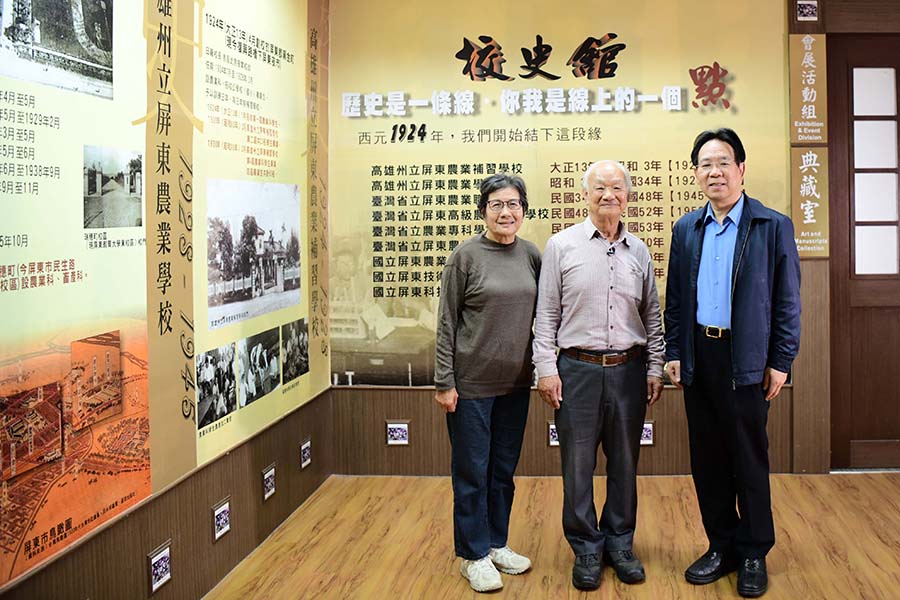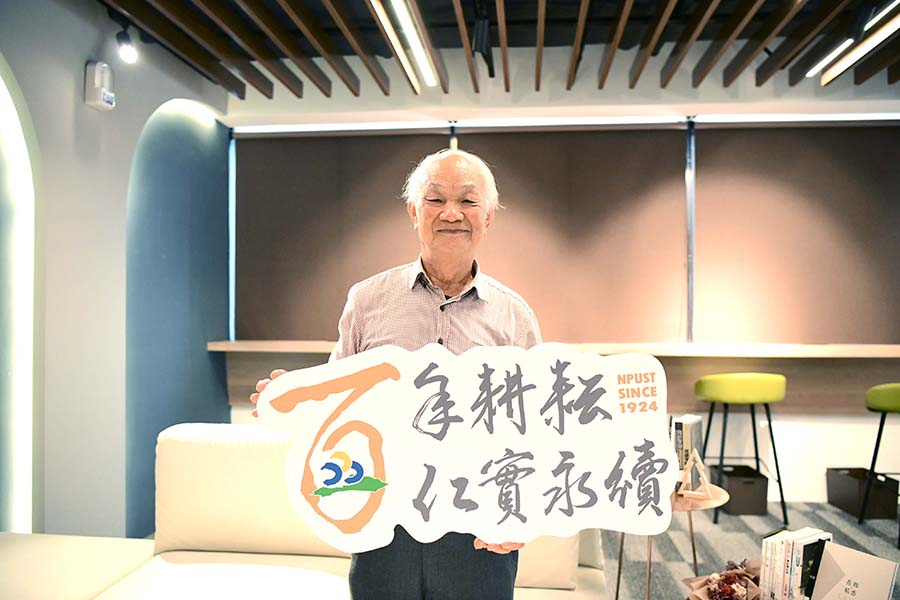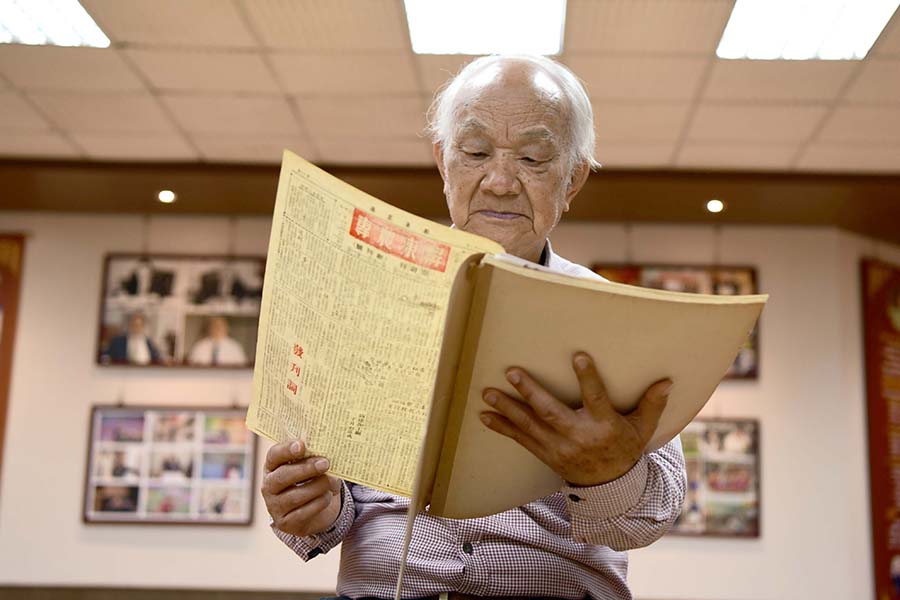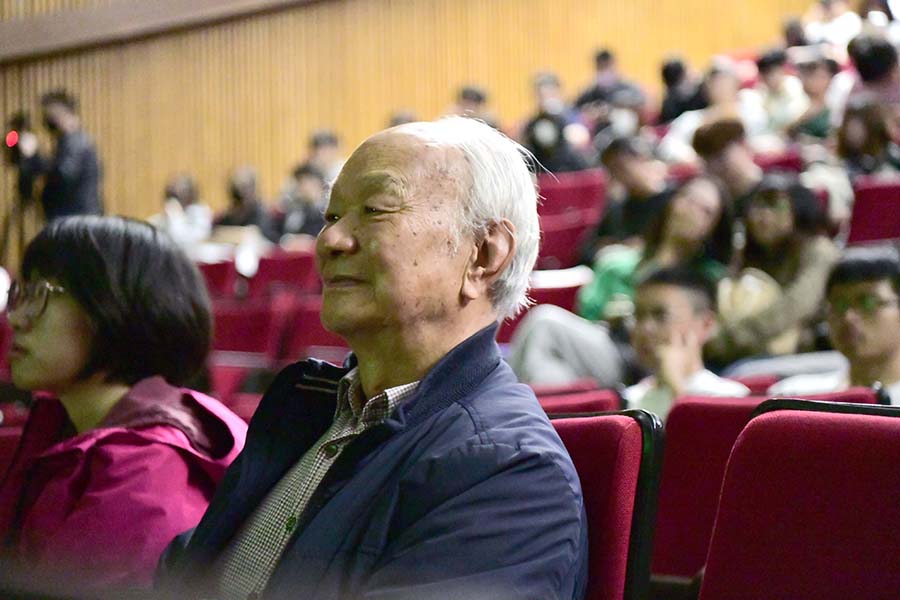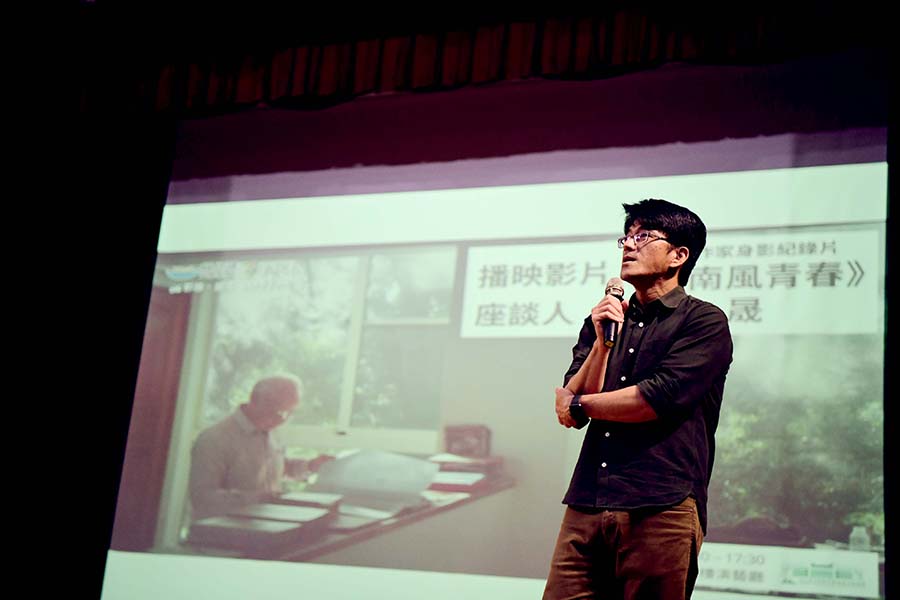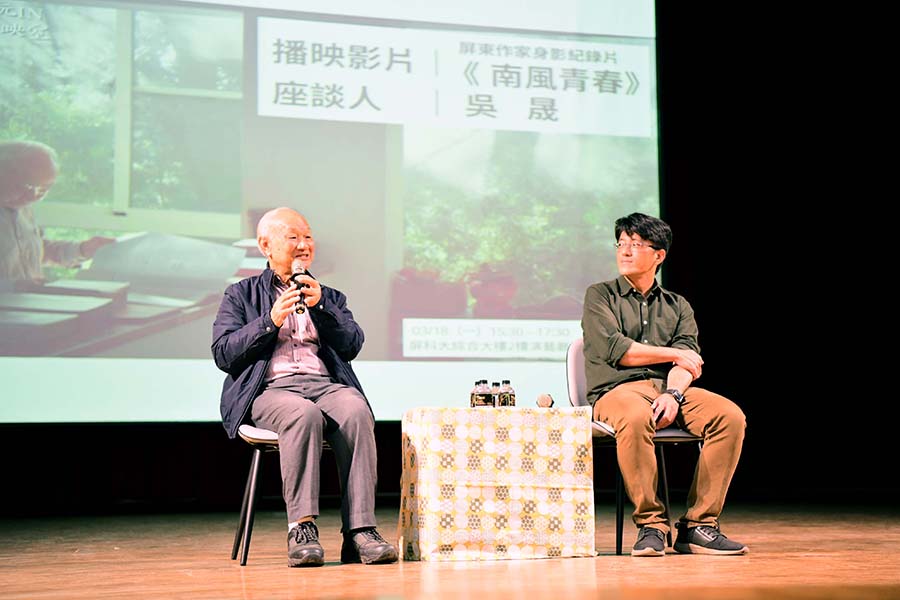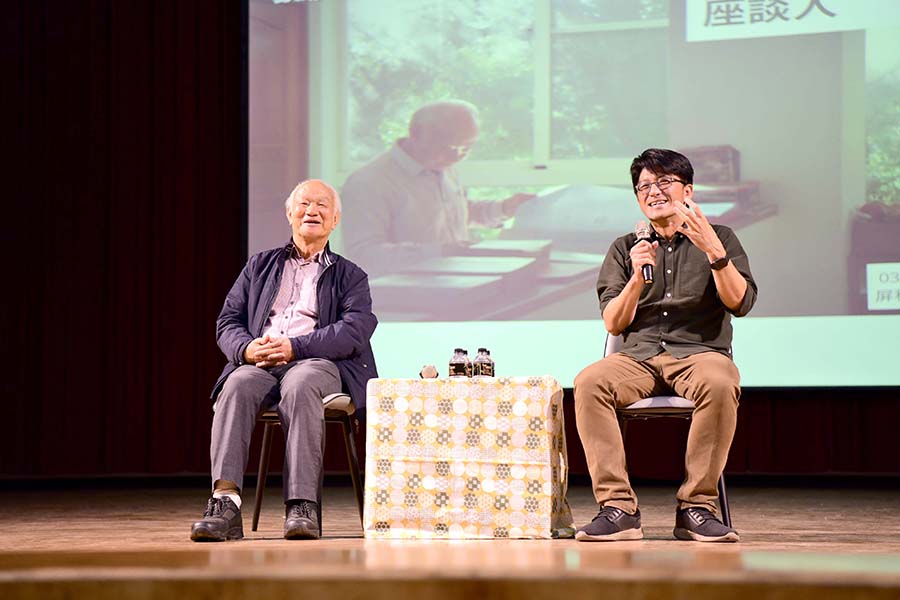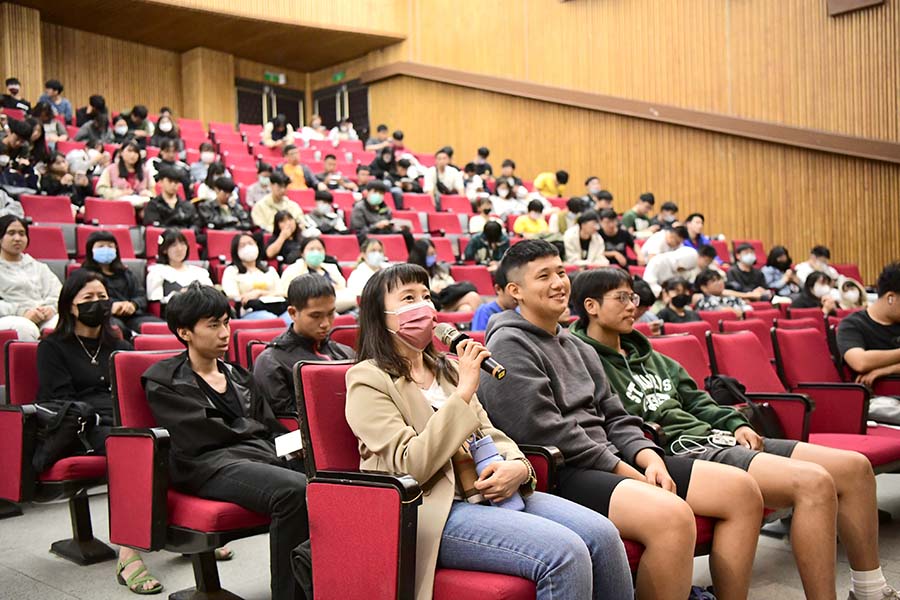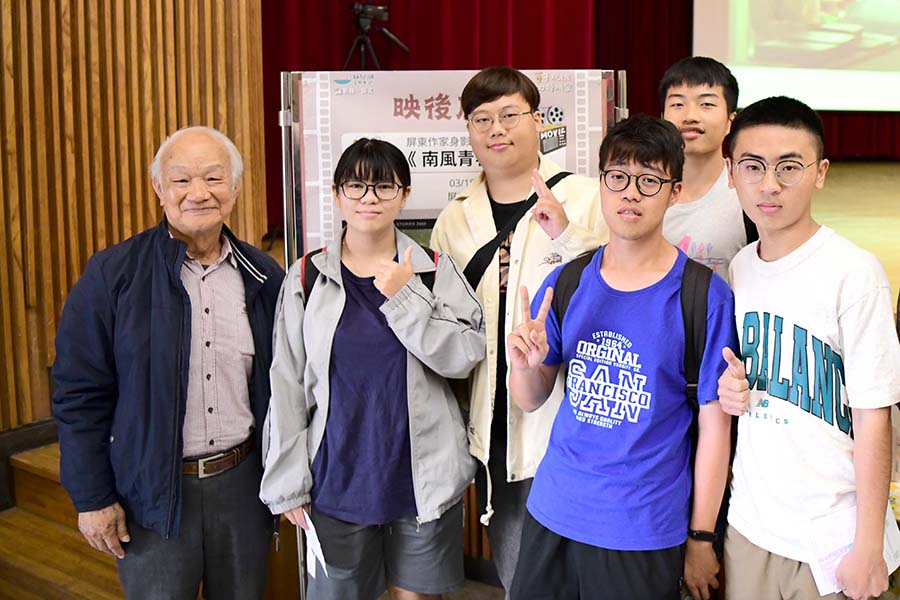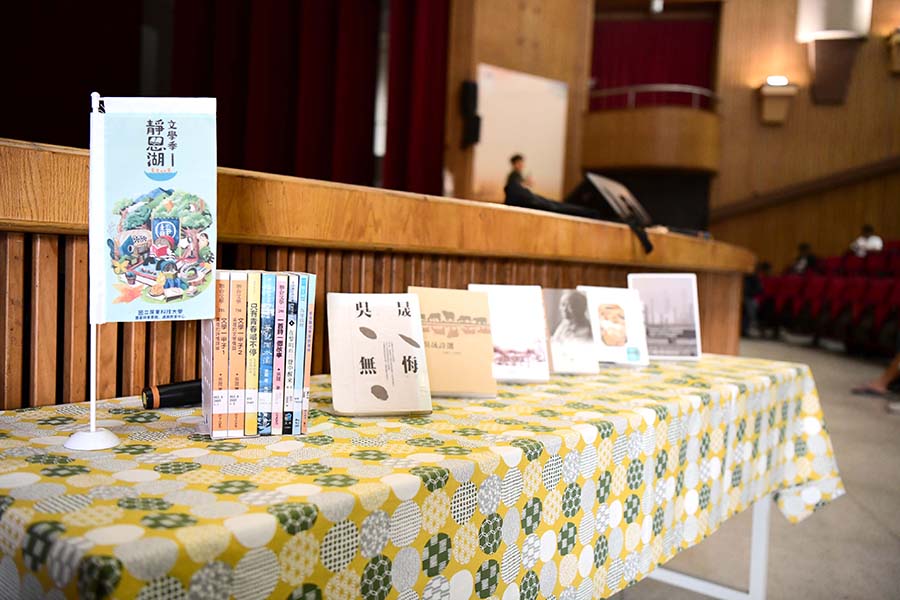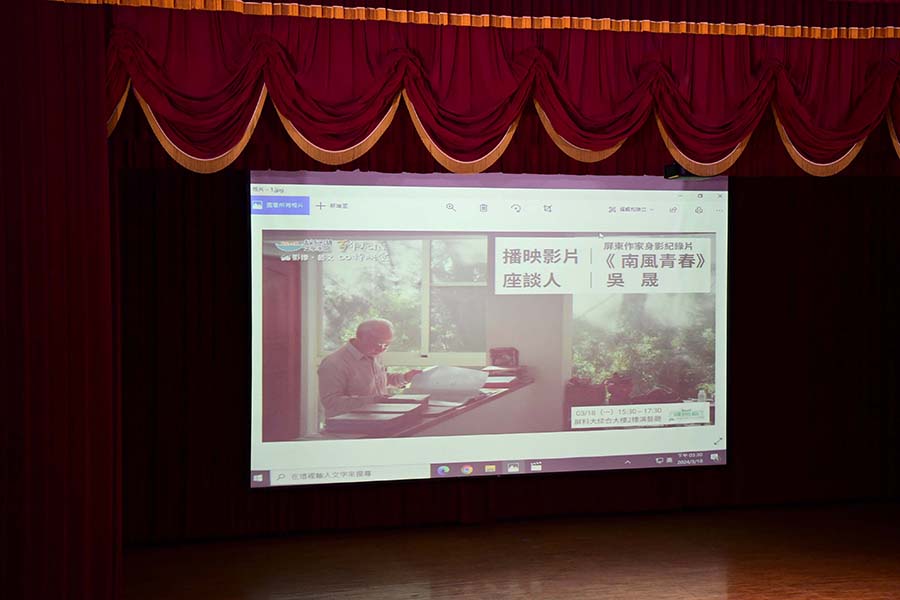The NPUST Library & Exhibition Hall and Center for General Education are jointly holding the 6th Jingsi Lake Literary Season, with a special film-screening series adding a new element this year. As part of the program, on March 18th, a documentary series about a Pingtung writers entitled “Youth in the Southern Wind” was screened at the library from 15:30 to 17:30. The film’s protagonist, Wu Sheng, was invited to talk with the students in a post-screening discussion. Wu Sheng, who is an alumnus of the (NPUST) Department Animal Husbandry was happy to return to his Alma Mater and share with his juniors as the school celebrates its centennial year. Reminiscing on the past, Wu explained that when he was a student at the Agricultural College, he served as the president of “Southern Wind Society” and later founded the school newspaper, “Pingtung Agricultural College”. With warm and endearing words he described school life, unruly youthful times, and his former dream of becoming an editor. Watching the film was like opening a time capsule filled with a treasure-trove of youthful nostalgia, peppered with the dust of decades gone by, and revisited again to take the audience and Wu Sheng himself on a trip to a place of distant memory.
During the post-screening discussions, Wu Sheng recalled times when he was immersed in editing the school newspaper and school magazine, and how he often neglected his homework. His teacher was very tolerant, however, and provided the utmost freedom and space for him to develop in the field of literature. This opportunity to learn to think independently and freely allowed him to achieve the things he would eventually come to achieve. Wu Sheng encouraged the young students to cultivate a literary and creative uniqueness while they study in their professional fields, explaining that their cultural accomplishments would allow them stand out among their peers. One of the students in the audience asked the famous writer how he worked through periods where inspiration is in short supply. The poet replied that he had never lacked inspiration, and he encouraged the students to experience life more and get a feeling for the people and things around them—and they should read prolifically to stir up an endless energy and creative motivation.
Wu Sheng, whose real name is Wu Sheng-Hsiung, was born in 1944 in Xizhou Township in Changhua, Taiwan. He graduated from the Department of Animal Husbandry at the Pingtung Agricultural College (which would later become NPUST). He later taught in the Biology Department at Changhua Xizhou Junior High School until his retirement, and now specializes in farming. In 1980, he was invited as a poet to participate in the “International Writing Program” of the University of Iowa in the United States. His published works include “The Soil: Wu Sheng’s 20th Century Poems”, “He’s Still Young – Wu Sheng’s 21st Century Poems”, “Peasant Woman”, “Dian Zaitou”, “Wu Sheng’s Selected Prose”, “My Love, My Sorrow” and many more writings base on his personal experiences of life on the farm, his observations of Taiwan’s rural areas, and other local sentiments. After the age of 40, he began exploring the fate of farmers in light of socio-economic changes, and created thought-provoking masterpieces which give focus to social changes in Taiwan.
The Library & Exhibition Hall and the Center for General Education are working together to shape the literary atmosphere on campus and help students make literature a part of daily life. For six consecutive years they have been jointly organizing the “Southern Wind Reading Season” and “Jingsi Lake Literature Season” to help promote these objectives. This year, as the university marks its 100th anniversary, the “Centennial Play IN: ∞Special Screening Room” has been organized, with plans to hold nearly 30 movie screenings. Those who are interested in participating in the activities are encouraged to check the Library and Convention and Exhibition Center website for the screening details.

